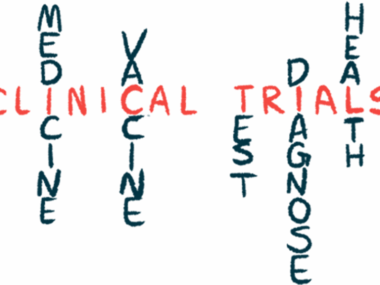Panel recommends EU approve hemophilia gene therapy Durveqtix
CHMP urges conditional approval for adults with hemophilia B
Written by |

A European Medicines Agency (EMA) committee has issued a positive opinion recommending conditional marketing authorization of gene therapy Durveqtix (fidanacogene elaparvovec), developed by Pfizer, to treat adults with severe and moderately severe hemophilia B.
The European Commission will review the recommendation from the EMA’s Committee for Medicinal Products for Human Use (CHMP) and issue a final decision in coming months on approval in all EU member states, as well as Iceland, Liechtenstein, and Norway.
The panel’s recommendation follows the therapy’s recent approval in the U.S. and Canada, under the brand name Beqvez, to treat adults with moderate to severe hemophilia B.
“Gene therapy is a one-time treatment that has the potential to free patients from years of routine factor IX infusions,” James Rusnak, MD, PhD, Pfizer senior vice president, said in a company press release. “This recommendation for fidanacogene elaparvovec is a positive step for eligible patients.”
Hemophilia B is caused by mutations in the F9 gene, which provides instructions for producing a blood clotting protein called factor IX (FIX). Mutations affect the production or function of FIX, impairing blood clotting. In hemophilia b, as in other types of hemophilia, this results in episodes of excessive and prolonged bleeding.
Hemophilia gene therapy designed as one-time treatment
One of the standard treatments for hemophilia is factor replacement therapy, which involves supplying patients with the missing clotting factor. This type of treatment requires patients to receive regular infusions several times a week or month in order to keep clotting factor levels high enough to prevent or control bleeds.
“Many people living with moderately severe to severe hemophilia B still experience persistent bleeding episodes, which can lead to painful joint damage and mobility issues,” said Rusnak, who also serves as Pfizer’s chief development officer of internal medicine and infectious diseases, research and development.
Fidanacogene elaparvovec is a one-time gene therapy designed to deliver a highly functional variant of the F9 gene to liver cells, where blood clotting factors are produced. The delivered gene is a naturally occurring form that encodes a version of FIX that has five to 10 times higher clotting activity compared with the regular form of the protein.
The gene is packaged inside a harmless adeno-associated virus (AAV) carrier containing a lab-made outer shell, AAVRh74var capsid, which helps it be taken up by liver cells. Once gene therapy components are taken up, liver cells are expected to continuously produce FIX, preventing bleeding episodes.
The CHMP’s positive opinion, which specifically applies to hemophilia B patients who have no pre-existing antibodies against the therapy’s viral vector or history of FIX inhibitors, was supported by data from the Phase 3 BENEGENE-2 clinical trial (NCT03861273).
The open-label trial evaluated the potential benefits of the therapy in men, ages 18-65, with moderately severe to severe hemophilia B. The study initially enrolled 45 participants, who completed at least six months of preventive replacement therapy during a lead-in study (NCT03587116), after which they received the gene therapy.
Results showed the mean annualized bleeding rate dropped from 4.5 bleeds per year in the lead-in study to 2.5 bleeds per year after treatment with the gene therapy.
Moreover, 60% of the patients did not experience any bleeds after receiving the gene therapy, compared with 29% in the lead-in study.
Participants will be followed for up to 15 years: six years in the BENEGENE-2 study and nine more in a Phase 3 extension study (NCT05568719).


